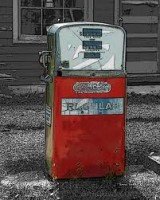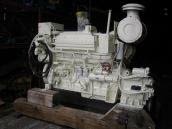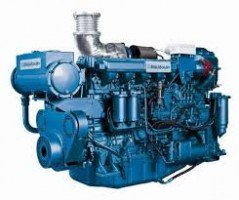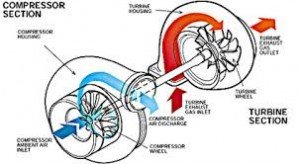Archive for December 29, 2013
Fuel Contamination and Owning a Trawler Boat – What You Should Know
December 29, 2013 After reading an article single vs twin a couple decades ago it predicted that 90% of all engine breakdowns are due to fuel contamination. Wow, that got my attention, Owning Trawler School Charters equipped with a single engine was going to be a problem, so I thought. If ever read an article that got to me it was that one, all I thought about was breaking down all the time because of the 90% fuel contamination rule.
After reading an article single vs twin a couple decades ago it predicted that 90% of all engine breakdowns are due to fuel contamination. Wow, that got my attention, Owning Trawler School Charters equipped with a single engine was going to be a problem, so I thought. If ever read an article that got to me it was that one, all I thought about was breaking down all the time because of the 90% fuel contamination rule. I needed to make myself bulletproof against this rule, first I had my fuel tanks pumped out it cost me $400.00, there was 100 gallons of fuel and 10 gallons was pure sledge, the other 90 gallons was put back into my tanks, that is called fuel polishing. These tanks are over 35 years old and never been cleaned. I was not happy so I pulled the six fuel injectors and had to rebuild them @ $600.00, now was I happy? No. The fuel pump, lets rebuild that @$800.00 I was still not happy,so how about fuel filters! They come in different filter sizes 500, 900 and 1,000. These are racor filters separated from the engines,1,000 being the largest they would be harder to clog up, they also come in #30, #10 & #2 microns (The flow of fuel), #30 will allow large amounts of fuel to flow through and that will allow debris to also flow through. Most boaters use #10 microns this allows good protection, in my case, I want the best protection so I use #2 which will really filter most debris but you can not use these on high fuel; guselling engines, it will suffocate them. I have 165hp engine that just putts along so this filter works for me. I do replace them every month just to make sure I have fresh ones all the time. It is the best $32.00 insurance policy one can invest in. You do have one more filter and that located is right on the engine, this is the last line of protection, here is how it works A #30 recon filter will have #10 micron on the engine & #10 recon will have a #2 micron on the engine. My #2 racor filter allows me to use a # 2 on the engine, this means I only have to replace the engine filter once a year. Now I’m a happy camper. Yes sir. Never had a breakdown in 8 years due to fuel contamination.
Ok lets get real, I went way overboard if I was to due this all over again this is what I would do. Just get the fuel tanks pumped and change your filters, use fuel additives or even a polishing system if you believe in them (I personally do not use one) that is it! This is my advice I give my clients during engine class, it is not by the book but first hand experience after 8 years and well over 300 trawler school charters I never had to bleed the engine.
In closing I would like to return back to the article written a couple decades back. First I’d like to address that 90% of breakdowns are caused by fuel contamination, that was the old days. Regulations were not enforced in the old days now you have strict EPA enforcement rules on fuel tanks, newer tank materials, additives, updated tanks not the old rusty ones so on and so on… I would in my opinion believe fuel contamination to be under 30%. If you have a fuel truck or fuel barge to fill you up then you will be receiving much fresher fuel. Written by Captain Bob owner, operator of Trawler school charters, for more trawlers article’s check out our web site wwwtrawlerschoolcharters.com hope you enjoyed this article. Sea U
Trawler School Charters
Captain Robert L. Hamilton
USCG Licenced
Vessel Miami Mermaid
398 East Dania Beach Blvd #281
Dania Beach FL 33004
954-649-9611
trawlerschool@gmail.com
www.trawlerschoolcharters.com
Captain Robert L. Hamilton
USCG Licenced
Vessel Miami Mermaid
398 East Dania Beach Blvd #281
Dania Beach FL 33004
954-649-9611
trawlerschool@gmail.com
www.trawlerschoolcharters.com
Single vs Twin Trawler Engine – The Great Debate!
December 29, 2013This article will be my hardest to write, it is so controversial. It causes people to boil over into a heated debate on which is the better set up Single or twin! In the matter of fact I refused to write about it in the book I wrote The ABC’s of Trawler Buying, that was seven years ago . Now that I have over eight years experience giving engine classes, I am ready to address this subject. Years ago I read an article Single vs Twin and I was disillusioned for years. It really hit me hard. When it was time to buy my Trawler I wanted a twin mainly because I am running a Trawler school 3 days 4 nights I wanted the reassurance of the back up twin engine setup. I had to settle for a single.
. Now that I have over eight years experience giving engine classes, I am ready to address this subject. Years ago I read an article Single vs Twin and I was disillusioned for years. It really hit me hard. When it was time to buy my Trawler I wanted a twin mainly because I am running a Trawler school 3 days 4 nights I wanted the reassurance of the back up twin engine setup. I had to settle for a single.
 . Now that I have over eight years experience giving engine classes, I am ready to address this subject. Years ago I read an article Single vs Twin and I was disillusioned for years. It really hit me hard. When it was time to buy my Trawler I wanted a twin mainly because I am running a Trawler school 3 days 4 nights I wanted the reassurance of the back up twin engine setup. I had to settle for a single.
. Now that I have over eight years experience giving engine classes, I am ready to address this subject. Years ago I read an article Single vs Twin and I was disillusioned for years. It really hit me hard. When it was time to buy my Trawler I wanted a twin mainly because I am running a Trawler school 3 days 4 nights I wanted the reassurance of the back up twin engine setup. I had to settle for a single.In my engine classes, I explain to my clients that I don’t care if they buy a single or a twin. I’m not taken sides on either set up, whatever is most comfortable for you that’s what counts. Years ago when I tried to write about this I made a list of pro’s and con’s about single vs twins, the pro’s outnumbered the cons by so much, I became biased and now tilt more towards a single engine. In fact 75%of my clients favor a twin that come toy school. Take it easy, we will go over the list soon.
It took me 4 years to come up with the right answer, what you should own a single or a twin, Are you ready? If you can hold a screw driver and a wrench at the same time then you can own a single engine. In the article they made it crystal clear 90% of engine breakdown is due to fuel contamination. All I could think of was breaking down on charter, I just could not sleep at night. I will talk about the other 10% on my next blog (flue condemnation), this article will have some good information, look for it.
Twins
Make no mistake twins are definitely for maneuverability, you’ll have that extra engine also more of a selection looking for a trawler because of the availability with twins.
With twins all your costs are doubled, oil & fuel filters, shaft, prop, transmission fuel & shift cables, instrumentations, maintenance …By the way to change my single engine & generator oil and fuel filters is now running around $120.00 per change. A twin engine room has a tight space for maintenance and leaves little room for additional equipment, water makers, generators… to be installed. Under the waterline you are left with 10 foot of exposed shafts.
Single
You can out think a single engine as long as you concentrate while maneuvering. You should know about prop walk ( look it up) your prop and extra large rudder equals prop thrust. Your most help will come from good old mother nature, wind and current, you soon will be able to out think your vessel after a few maneuvers. This is your only engine and you must keep it in top shape by maintaining your fuel, oil, filters, keep some spares parts on board and your good to go. The best things I enjoy about my single is the 360 degree exposure to my engine and the space in the engine room. Under the water line the shaft goes thru the keel and only 12 inches is exposed. Mine has a bimmi bar (a bar that is connected from the keel to my rudder) for full prop protection, that to me is huge.
If you need help getting off the dock a Bow thruster or a Stern thruster is the answer. That should do it. I had this on my list to purchase but after maneuvering for a few weeks, I was able to spin my trawler on a dime in a storm and also if I was pinned against the dock by wind, I learned to how to get off.
Other than owing a twin, emergency get home engine or back up engine. these are options you should think about. although in ten years of selling trawlers, I never saw any of these options installed! One way a back up engine is installed would be a small get home engine connected to the shaft. Sounds good but what happens if your shaft, prop or locked transmission is the problem. You are out of luck. I think the most feasible would be Stern thrusters, transom mounted unit that can be lowered and can rotate at 90 degrees. The good thing about stern thrusters is you can use then for docking.This decision is up to you and you alone. You may want to try both set up’s before buying either one.
This article written by Captain Bob Trawler School Charters more blogs at www.trawlerschoolcharters
Trawler School Charters
Captain Robert L. Hamilton
USCG Licenced
Vessel Miami Mermaid
398 East Dania Beach Blvd #281
Dania Beach FL 33004
954-649-9611
trawlerschool@gmail.com
www.trawlerschoolcharters.com
Captain Robert L. Hamilton
USCG Licenced
Vessel Miami Mermaid
398 East Dania Beach Blvd #281
Dania Beach FL 33004
954-649-9611
trawlerschool@gmail.com
www.trawlerschoolcharters.com
Understanding Your Trawler Diesel Engine
December 16, 2013 Trawler School Charters – This blog is about understanding your Diesel engine.
Trawler School Charters – This blog is about understanding your Diesel engine.
Diesel engines can deliver many years of trouble free service given proper preventive maintenance procedures. Fortunately, diesel engines are remarkably simple in principle and require very little in the way of routine maintenance, although what little is required it is essential for it’s long life. Most diesels will run trouble free for thousands of hours just by changing your air, oil & fuel filters on a regular basis. According to the CAV, one of the worlds largest manufactures of fuel injection equipment, 90% of diesel engine problems result from contaminated fuel. The remedy is quite simple: set up a proper fuel filter system and monitor it. Knowledge is your best resource. The engine room should have the motto “Cleanliness is next to Godliness”.
I will bet that within a day of reviewing this very informative book Marine Diesel Engines, 2nd Edition, written by Nigel Calder, on how to maintain, repair and improve your engine, you will understand that a diesel is a thoroughly logical piece of equipment. Along with your owner’s manual, you will be able to venture anywhere with the ability and confidence to handle any trouble that may happen to your engine should a problem come your way. All you need to know is the three basic principles of the diesel engine, they are as follows,Air, Water & Fuel and once you learn how they interact you should be able to understand the operation of your engine. You don’t need to become a mechanic just know the three principles. Learning preventive maintenance can become your best defense..
Trawlers are long range cruisers, it’s up to you to keep that heart beating (your engine). You are the only heart surgeon on board where ever you may be, you won’t need a PHD to understand the simple operation of the diesel engine as long as you do your homework. Think of the time and money that can be saved. We’re not talking about a complete overhaul, just simple repairs to keep you going “trouble free”. Newcomers say to themselves, I don’t want to be a mechanic, or get my hands dirty every time I have a problem, I’ll just call a serviceman.
The experienced cruiser learns pretty quickly that there isn’t anyone else who cares as much about your boat as you do. Also keep in mind that service is hard to find on the water or on a small Island. Many of the jobs you might pay someone else to do can be done quickly and easily once you are accustomed to working on your engine. Learning some of the routine service procedures also helps you gain knowledge and an understanding of the boats systems. The best mechanics are owners with specialized skills to work on their own engine. This theory is based on the principles that your devotion to the engine room is essential for successful cruising.
Written 11-23-2013 by Captain Bob Trawler school charters for more information join us at www,trawlerschoolcharters.com 954 -649-9611 trawlerschool@gmail.com.
Trawler School Charters
Captain Robert L. Hamilton
USCG Licenced
Vessel Miami Mermaid
398 East Dania Beach Blvd #281
Dania Beach FL 33004
954-649-9611
trawlerschool@gmail.com
www.trawlerschoolcharters.com
Captain Robert L. Hamilton
USCG Licenced
Vessel Miami Mermaid
398 East Dania Beach Blvd #281
Dania Beach FL 33004
954-649-9611
trawlerschool@gmail.com
www.trawlerschoolcharters.com
Turbo Charged or Naturally Aspirated Diesel Engine – Trawler School Charters
December 16, 2013 In this latest post on the Trawler School Charters Blog we are talking about Engines. There is a difference when choosing a Diesel engine, they are either turbo charged or naturally aspirated.
In this latest post on the Trawler School Charters Blog we are talking about Engines. There is a difference when choosing a Diesel engine, they are either turbo charged or naturally aspirated.A naturally aspirated engine for example is a small block that could be a 120HP or 135HP (Horse Power), this engine has no stress, it just plows slowly through the water and is a very durable engine. I found in most older trawlers 1972 through 1985 had two types of engine manufacturers, a Lehman or Perkins,. If maintained & taken care of, changing your oil and all filters between 100 -200 hours these engines can last up to 25,000 hours. If you buy a used trawler with 5,000 hours on a naturally aspirated engine then most likely you can pass this engine down to your grandchildren’s,
Turbo charged engine, the Turbo is a 35lb apparatus bolted to your engine. It has a high speed fan with a high rpm that sucks in a lot of air that goes into your piston chamber and ignites quicker. It should give you more horse power on a small block engine, for example, your 120hp small block engine now becomes a 185hp turbo charged engine. You are now working this engine harder by putting a large load on that small block.The end result is stress and with stress comes shorter hours on your engine, end result being about 10,000 hours, you may have to rebuild your engine. That adds up to 10,000 hours turbo vs 25,000 hours on a naturally aspirated engine. Most engines are fitted with a turbo these days due to the EPA. The turbo allows for a smaller block which will sport a lesser weight engine with larger horse power. My engine has a turbo not that I wanted one, I had no choice, I could not find a naturally aspirated engine, I have been very lucky. My engine has over 18,000 hours on my turbo. This is what happens when you change your oil and filters every 100 hours. The heat on a turbo will turn the housing red hot, please watch yourself and beware of a nasty burn. Turbo’s can have problems such as recalibration, rebuild or even replacing it, any of these problems are time and money for that 35 pound apparatus. Written by Captain Bob (Robert Hamilton).
For more blogs about trawlers go to www.trawlerschoolcharters.com, become a trawler scholar and attend our trawler school. Hoped you enjoyed my article.
Trawler School Charters
Captain Robert L. Hamilton
USCG Licenced
Vessel Miami Mermaid
398 East Dania Beach Blvd #281
Dania Beach FL 33004
954-649-9611
Captain Robert L. Hamilton
USCG Licenced
Vessel Miami Mermaid
398 East Dania Beach Blvd #281
Dania Beach FL 33004
954-649-9611